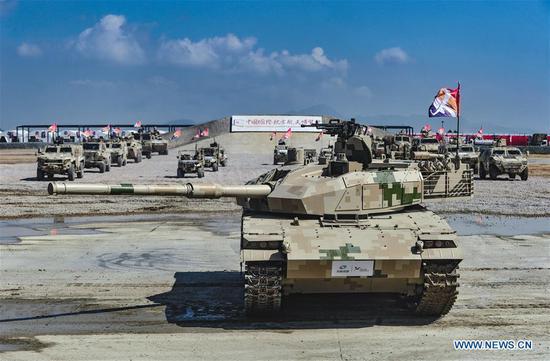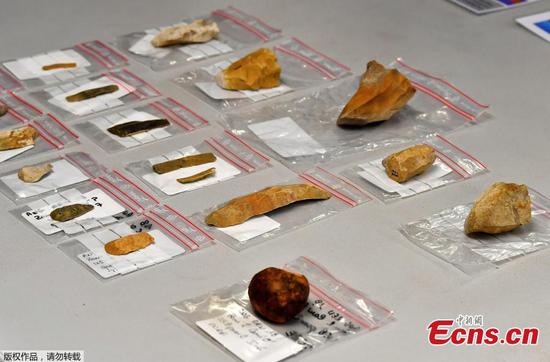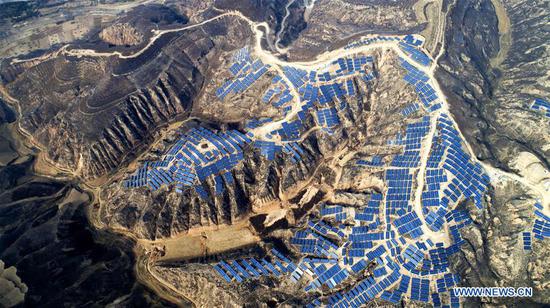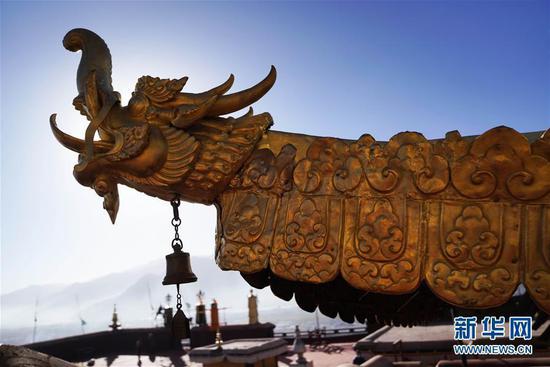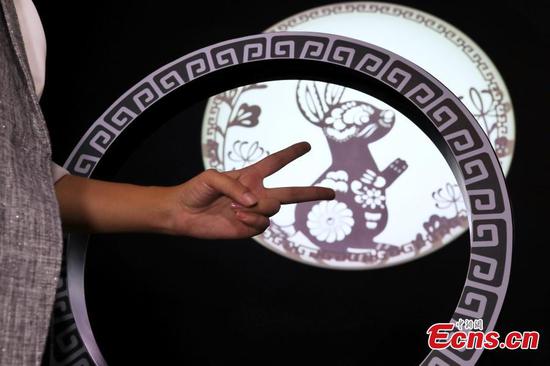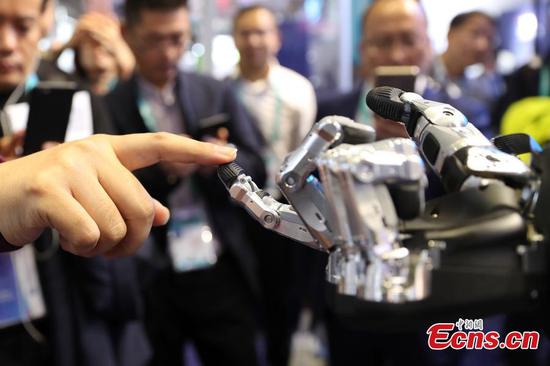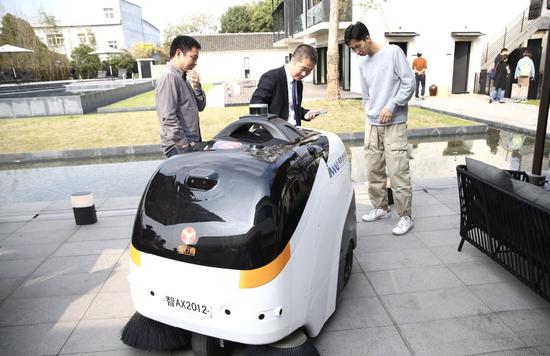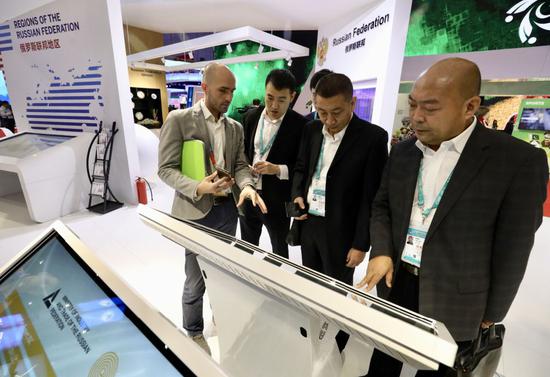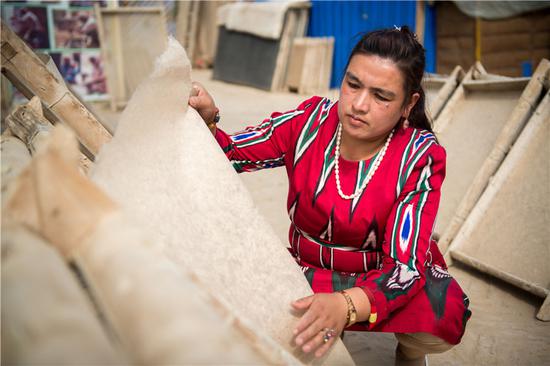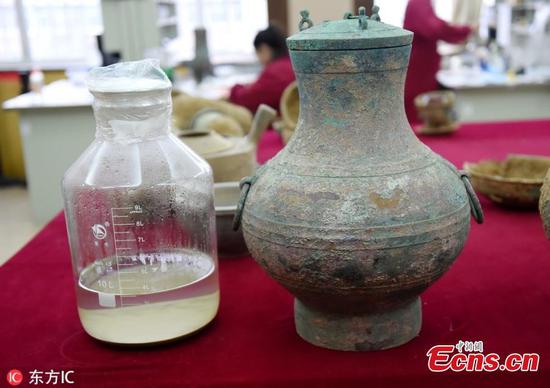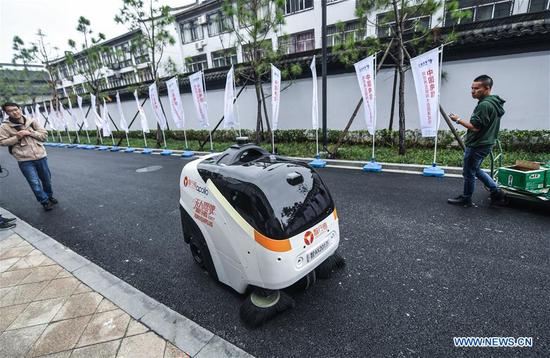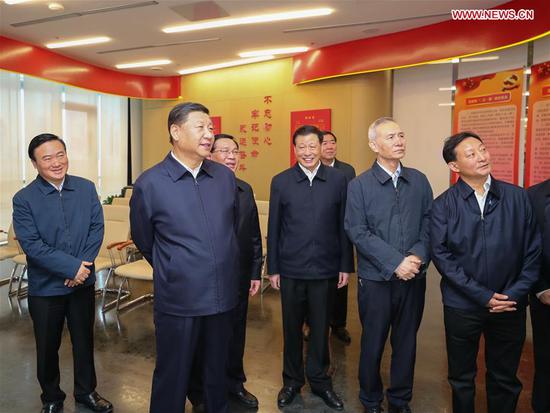
Domestic and foreign participants join the International Cooperation along the Digital Silk Road Forum of the Fifth World Internet Conference held in Wuzhen, Zhejiang Province. (Photo by Chen Zebing/China Daily)
International cooperation forum at internet conference looks to future
For centuries, the ancient Silk Road trade route connected East and West. In this technological era, it is being revitalized with synergized government development strategies, people-to-people bonds and cross-border e-commerce.
The International Cooperation along the Digital Silk Road Forum was held on Thursday during the Fifth World Internet Conference in Wuzhen, East China's Zhejiang Province, with Chinese government officials, overseas dignitaries and tech heavyweights discussing challenges and solutions for a digital future.
"The Belt and Road is based on the legendary history of the Silk Road. But now, we are trading more than silk and no longer using camels. Rather, we are using fintech, online education, smart city development and artificial intelligence to digitalize the modern economy," said Liu Liehong, vice-minister of the Cyberspace Administration of China.
The Digital Silk Road was first initiated by China in 2015. It covers more than 65 countries and counting, and involves helping other countries to build digital infrastructure and to develop internet security.
"The digital economy is an increasingly important driver of global economic growth and plays a significant role in accelerating economic development, enhancing productivity of existing industries, cultivating new markets and industries, and achieving inclusive, sustainable growth," Liu said.
A report released by the Cyberspace Administration of China said that the size of China's digital economy grew to 27.2 trillion yuan ($3.9 trillion) last year, up 20.3 percent year-on-year, accounting for 32.9 percent of the country's GDP.
Efforts should also be made to promote cooperation in the countries and regions along the Belt and Road routes to develop the digital economy; to promote deep integration between the internet, big data, artificial intelligence, and the real economy; and to make the manufacturing, agricultural, and service sectors more digitalized, smart and internet-powered, Liu said.
Chen Zhaoxiong, vice-minister of industry and information technology said China will strengthen cooperation to explore cutting-edge technologies and to accelerate digital transformation, so that rapid tech advancements can benefit people in countries involved in the Digital Silk Road.
He called for more efforts to make breakthroughs in key technologies, such as microchips and smart sensors, to participate in international standard-setting activities, to apply new industrial internet technologies and products to key industries, and to accelerate the development of the internet of vehicles and the internet of things.
"We will make a big push to develop the industrial internet in three aspects," Chen said. "First, we will promote the construction of a high-speed broadband network, including 5G connections. Second, we need to build internet application platforms for large firms and public service platforms for small and medium-sized companies. Third, we must attach great importance to the safety of industrial data."
12Next >>|

An audience member takes a picture at the Fifth World Internet Conference in Wuzhen, East China's Zhejiang province. [Photo by Chen Zebing / China Daily]
Omar Bin Sultan Al Olama, the United Arab Emirates' minister of state for artificial intelligence, said the initiative to deepen cooperation in the digital economy will bring new growth potential and create a community of shared interests. He said he expected more companies from China and other countries to partner with the United Arab Emirates in the ICT sector.
Sun Pishu, chairman and CEO of Inspur Group Co Ltd, a major server maker and big data company, said the Belt and Road Initiative is not only about connecting ports, railways and highways but freeing up the flow of information and data, to enhance digital links among the involved economies.
"China is one of the most sophisticated IT markets and the largest data producer in the world," Sun said. "Our four decades of experience in building information infrastructure is of great value to other developing countries and regions."
Besides government development strategies, cultural exchanges and people-to-people bonds are also of great significance in driving the Digital Silk Road.
Zhang Lijun, chairman of China Arab TV, a Chinese and Arabic bilingual television channel based in Dubai, underlined the important role that people-to-people bonds are playing in building the Digital Silk Road, since mutual understanding and trust among countries along the Belt and Road routes are the foundation of the project.
China Arab TV is a key platform for international communication and media positions in the Middle East, strengthening information sharing and cultural exchanges between both parties, and also providing an important window for Chinese enterprises for international communication, in order to generate more economic and trade needs, Zhang said.
People from Europe, the United States and the Middle East are not as heavily addicted mobile phone consumers as are most Chinese, and still get more information and entertainment from TV programs, which remains the mainstream direction in the field of video development in foreign countries, he said.
"It fits well with foreign video consumption trends for us to go overseas and accelerate cultural exchanges, and economic and trade cooperation between China and Arab countries," Zhang said. "We will continue to use big data, cloud computing, artificial intelligence and other internet technologies to better understand our audience's needs and provide more programs that will bring a closer relationship between the people in China and Arab countries." Entrepreneurs at the forum stressed that cross-border e-commerce also plays an important role in promoting international cooperation.
Ding Lei, CEO of internet firm NetEase, which owns cross-border e-commerce platform Kaola, said that cross-border e-commerce has provided global enterprises with great opportunities to change the original market pattern, which not only makes it easier for global consumer goods to enter China but also benefits Chinese customers.
"This cooperation model will lead to a win-win result," said Ding. "Small and medium-sized enterprises in countries along the Belt and Road routes will have broader sales channels with the help of Chinese e-commerce platforms, and we will find qualified local entrepreneurs and reliable partners in this process."
Cross-border online business lowers the barriers to entry in international commerce. The structure of global markets and commerce models tend toward fragmentation, which is more suitable for small companies.
Shifting resources and energy from large corporations towards the smaller will thus benefit more people in those less-developed countries, Ding said.
|<















